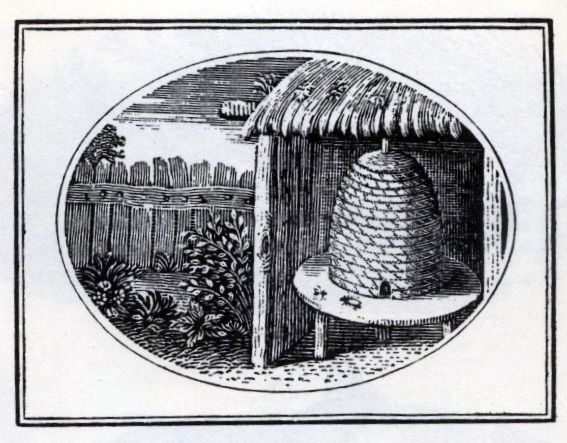On 12 December 1775 Gilbert White, the naturalist of Selborne in Hampshire, wrote a letter to his friend Daines Barrington in which he recalled a remarkable character who had lived in the village ‘more than twenty years ago’. He doesn’t name the lad, and just refers to him as ‘an idiot boy’. What made him remarkable was his all-absorbing fixation on bees. They were, says White, ‘his food, his amusement, his sole object’.

This is how White describes the boy:
In the winter he dosed away his time, within his father’s house, by the fireside, in a kind of torpid state, seldom departing from the chimney-corner; but in the summer he was alert, and in quest of his game in the fields, and on sunny banks. Honey-bees, humble-bees, and wasps, were his prey wherever he found them: he had no apprehensions from their stings, but would seize then nudis minibus [with bare hands], and at once disarm them of their weapons, and suck their bodies for the sake of their honey-bags.
Sometimes he would fill his bosom between his shirt and his skin with a number of these captives; and sometimes would confine them to bottles. He was a very merops apiaster, or bee-bird; and very injurious to men that kept bees; for he would slide into their bee-gardens, and, sitting down before the stools, would rap with his finger on the hives, and so take the bees as they came out. He has been known to overturn hives for the sake of honey, of which he was passionately fond. Where metheglin [= ‘meddyglyn’, ‘a spiced or medicinal mead, traditionally associated with Wales (Chambers)’] was making he would linger round the tubs and vessels, begging a draught of what he called bee-wine. As he ran about he used to make a humming noise with his lips, resembling the buzzing of bees.
This lad was lean and sallow, and of a cadaverous complexion; and, except in his favourite pursuit, in which he was wonderfully adroit, discovered no manner of understanding.
When a tall youth he was removed from hence to a distant village, where he died, as I understand, before he arrived at manhood.

And that’s how Gilbert White ends his short account of the bee boy: with no summary or comment or disapproval, no moral drawn. In fact, as Richard Mabey says in his biography of White, he treats the boy in exactly the same way he usually treats the mammals, birds and insects that most of his letters discuss. There’s the same gentle and meticulous objectivity, expressed in a wonderfully bright, deceptively simple style, shorn of the rotundity with which eighteenth-century writers often decorate their prose. People like the boy are objects of study, ‘curiosities’, in Richard Mabey’s phrase, ‘like the moose and the tortoise’. The letter, like the boy’s short life, ends abruptly. White leaves it to his readers to add a note of sorrow and regret. (I’m not sure that Mabey is right to accuse White of a lack of sympathy or understanding, it’s just that he’s reticent giving rein to his emotions.)
‘Idiot’ was the usual term at the time to describe someone with a serious lack of intellectual ability, or an imbalance in understanding. In this sense it didn’t necessarily carry with it the casual insult or stigma of the word in today’s usage. But understanding of such conditions was rudimentary, and few people using the term would have stopped to consider what lay behind it. Today we’d no doubt be inclined to see the boy as neurodiverse, as lying somewhere on the autistic spectrum. Eighteenth-century Selborne, though, was content to let the boy live his life as he wished, if we’re to believe White. Only in the nineteenth century would he have been separated from his local community and locked away in an institution.

The figure whom the bee boy brings to my mind is another ‘specimen’ of unorthodox mentality, Kaspar Hauser, most vividly celebrated by Werner Herzog in his 1974 film The enigma of Kaspar Hauser. Hauser, like Gilbert’s boy, appears to be an innocent simpleton, but shows remarkable, unsettling abilities in certain areas that cause him to become an object of wide attention.
Gilbert White’s ‘idiot boy’ story later crossed the Atlantic. Mark Twain was familiar with his letter, as we know from one of his notebooks. In The adventures of Huckleberry Finn he has Huck claim that Jim, the runaway slave boy, ‘knowed all kinds of signs. He said he knowed most everything’.
And Jim said you mustn’t count the things you are going to cook for dinner, because that would bring bad luck. The same if you shook the table-cloth after sundown. And he said if a man owned a beehive and that man died, the bees must be told about it before sun-up next morning, or else the bees would all weaken down and quit work and die. Jim said bees wouldn’t sting idiots; but I didn’t believe that, because I had tried them lots of times myself, and they wouldn’t sting me.


Leave a Reply